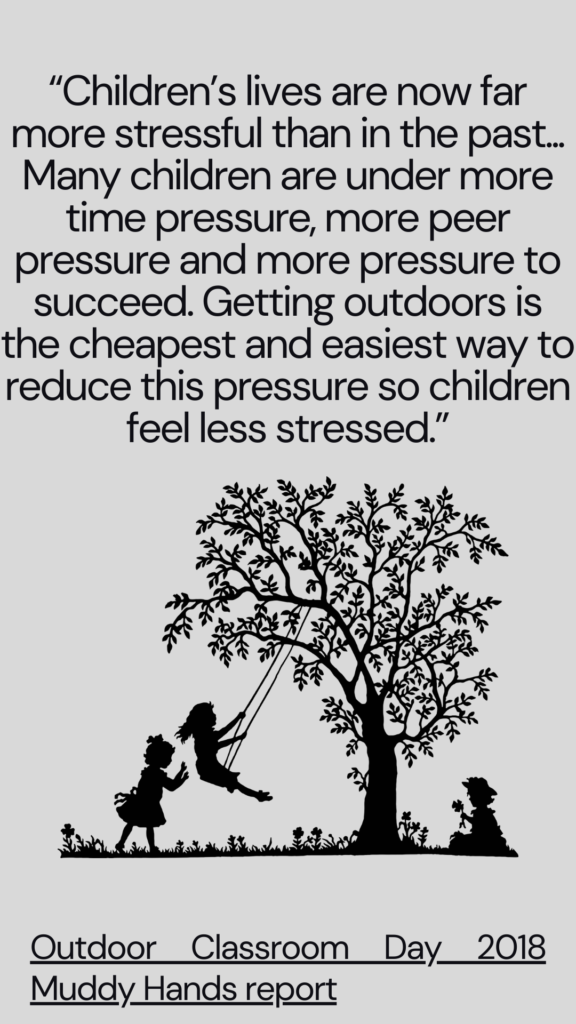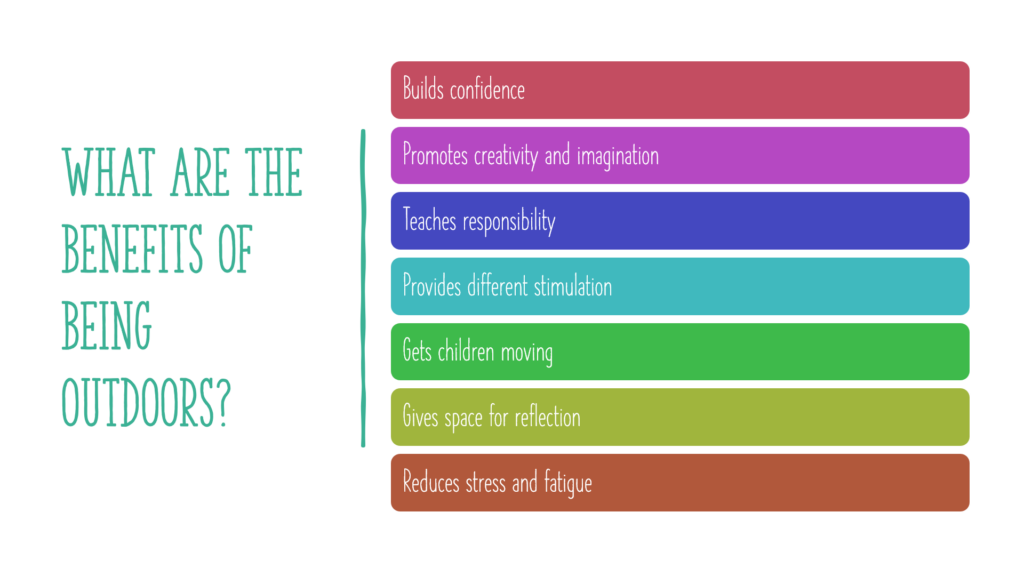The Benefits of Nature
Research shows that being outdoors in nature can have a positive impact on children’s emotional wellbeing. The World Health Organisation reported that children who spend regular time outdoors are 55% less likely to develop mental health problems. Spending time outdoors can improve the emotional wellbeing of babies, children and their family by improving mood, confidence and wellbeing by providing an enabling and motivational environment.
According to the Outdoor Classroom Day 2018 Muddy Hands report:

The current recommendation from The World Health Organisation, states that children under five should have at least three hours per day engaging in physical or outdoor play. Richard Louv, author of Last Child in the Woods, coined the phrase ‘nature-deficit disorder’ to describe the negative consequences to individual health as children have less and less physical contact with the natural world, and in particular just ‘being’ in nature.

Engaging with Nature
Find some ideas for engaging babies and children with nature here:
You can read more reports and research about how being outdoors in nature can support SEDW needs here.

Stop and Reflect:
Case Study: Rise & Shine Wellbeing
- ‘Tree Babies’ sessions were run with the aim of allowing parents the opportunity to engage with their babies in a safe, therapeutic outdoor environment, providing space to promote attachment, attunement and play skills. Sessions were designed to develop care-giver social skills, confidence and peer relationships.
- Sessions were facilitated by an Infant Mental Health Key Worker & a Yoga/Meditation Instructor.
- Participants were introduced to mindfulness practices, forest bathing, creativity, baby yoga and encouraged to experience nature.
- What do you think the evaluation showed in terms of impact?
- Read more here to find out!






